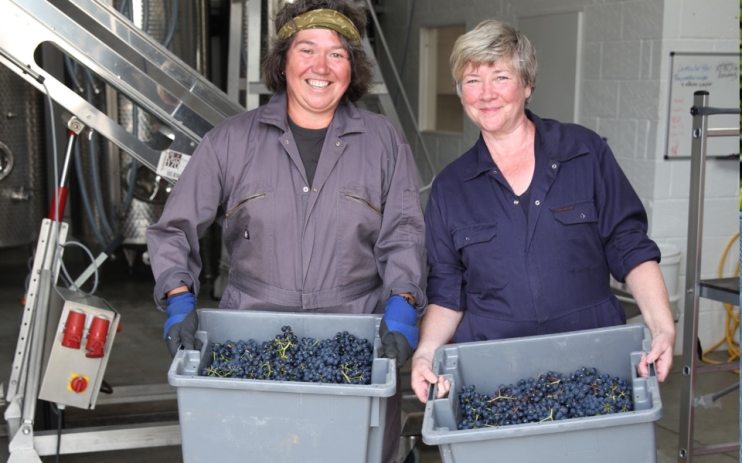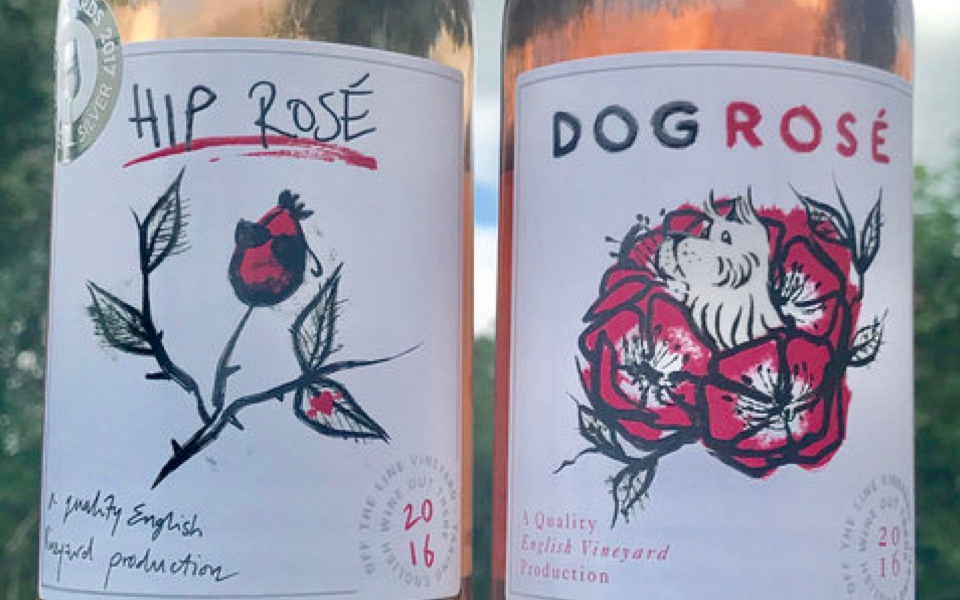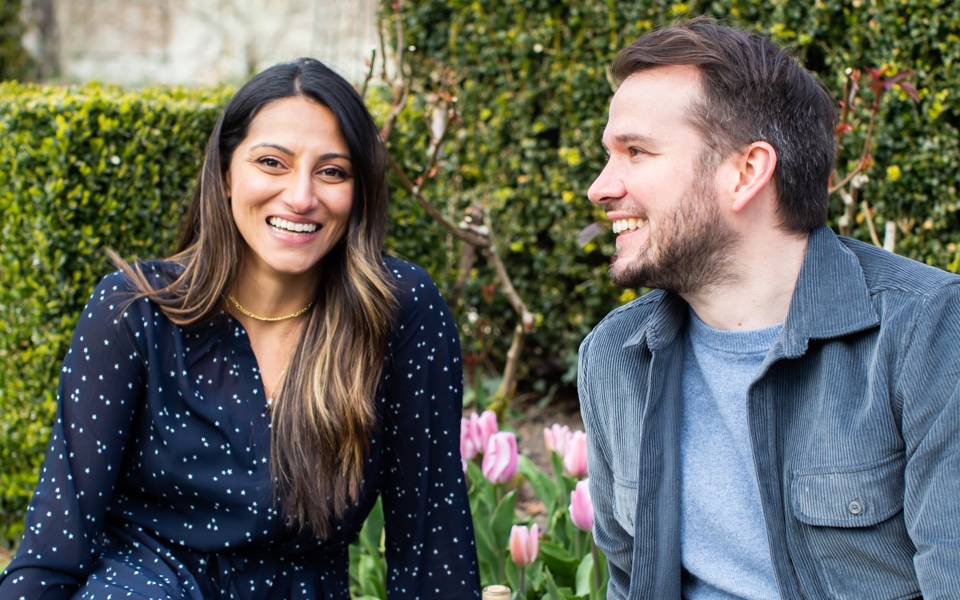Two winemakers changing the world, one rosé at a time

English rosé is a rapidly diversifying wine category, with the smallest boutique vineyards producing standout wines.
The first vines were planted at the Off The Line Vineyard in Hellingly, East Sussex in 2014. The wines are made on site in a purpose-built red wine only winery by Kristina Studzinski and her partner Ann-Marie Tynan.
Studzinski, the daughter of a Polish immigrant, is a solicitor-turned-winemaker who gave up jurisprudence to become a qualified agricultural spray operator. Tynan comes from Co Kildare and is a raku ceramic sculptor-turned-oenologist. Both studied at Plumpton College under Sarah Midgely.
Their business is founded on sustainability, with all wastewater treated in a state-of-the-art Bio-Bubble, which uses bacteria and oxygen to process waste and discharge clean water into a ditch.

Their Hip Rosé (100% Pinot Noir) is available from Waitrose Online Cellar and selected Waitrose stores in London and Sussex. They also make a super pale dry “Dog Rosé” (Regent, Rondo and Dornfelder) and the predominantly Regent “Dancing Dog”.
Another ex-lawyer, Elisha Rai, founded Folc with former venture capitalist Tom Cannon. Their award-winning rosé, which is made from seven grapes grown in multiple vineyards in Kent and east Sussex and produced and bottled by Defined Wine in Canterbury, is the highest-ranking English still rose.
“Rosé production is well suited to cooler climates, when red grapes may fail to ripen sufficiently for red wine production,” says Tom, who is originally from Wimbledon.
“Rosé is very on-trend. A lifestyle in a glass of wine. The colour is also important to us so depending on the harvest and when the grapes have been picked, we may add a darker grape to add more colour, which is naturally lost during the winemaking process.”

Folc is also part of WineGB’s sustainability project. “We’re immensely proud of using zero plastics from grapes to glass and have ambitions to be completely carbon neutral. It’s not the cheapest way to run a business but in today’s world you can’t ignore ethical living standards and the compounding impact small business decisions can have on our climate. Even our cork is derived from sustainable, renewable sugarcane-based raw materials.”
Folc is a cosmopolitan wine, with grapes from England, France and Germany all integrated into one bottle, including Pinot Noir, Pinot Meunier, Chardonnay, Bacchus, Reichensteiner, Schonburger and Dornfelder.
Rai’s family originally came from the Punjab and she is an advocate for diversity in the often depressingly white wine business: “There are many reasons why there isn’t much diversity within the wine industry from a gender and race perspective – the cost of an education in wine is one barrier. “The phrase ‘be the change that you want to see’ comes to mind. Before launching Folc, I couldn’t see a single other person of colour working in UK wine production.
“That was even more intimidating for me than the wine world itself so I hope that through my promotion and championing of Folc and English wine in general, it will encourage more people of colour to feel that wine is something they could not only work in but also thrive in.”